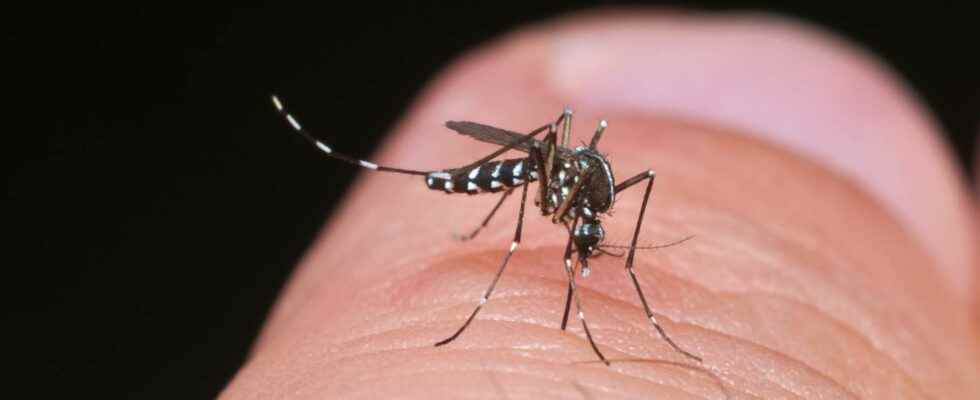The tiger mosquito is a vector of several serious diseases such as chikungunya, dengue or Zika. And it seems poised to invade the whole of metropolitan France. So, how to differentiate it from its common cousin?
You will also be interested
[EN VIDÉO] Tiger mosquito: four tips to protect yourself With the arrival of summer, mosquito bites appear. If they are mostly benign, those of the tiger mosquito can transmit diseases such as dengue fever or chikungunya. The IRD (Research Institute for Development) explains in this short video how to protect yourself simply.
With sunny days, itching and red blisters also return. The mosquito bites. Most of the time, these remain more annoying than dangerous for our health. But with the proliferation of departments in which have been reported tiger mosquitoes – aedes albopictus, for scientists – the situation could well change. Because these mosquitoes have the unfortunate tendency to be disease vectors.
In the meantime, here are some characteristics that help distinguish the villain tiger mosquito of his almost sympathetic common cousin. First, and this is not nothing, note that the tiger mosquito is a mosquito diurnal. It generally attacks at daybreak or at dusk. Unlike the common mosquito which prefers the night.
Identifying the tiger mosquito: the different distinctive signs
Side physicalagain, there are real differences between the two species of mosquitoes. The tiger mosquito remains relatively small. No more than two millimeters in general against up to seven millimeters for its cousin. Its wings appear entirely black and not transparent like those of the common mosquito. And above all, it has a very black body – and legs – white striped. More like a zebra than a tiger, actually. But in full flight, it is not always easy to observe.
Other distinctive signs:
- its flight is rather slow and disorderly. And he is silent as the common mosquito makes noise when it flies ;
- its bite is sharper than that of a common mosquito;
- it is mainly found in peri-urban or urban areas, preferably dense, rich in water reservoirs (flower pots, watering cans, guttersetc.).
Now that you have all the cards in hand to identify the villain, do not hesitate, if you cross his path, to report him on this site dedicated to its monitoring.
Interested in what you just read?
Subscribe to the newsletter Health question of the week : our answer to a question you ask yourself (more or less secretly). All our newsletters
